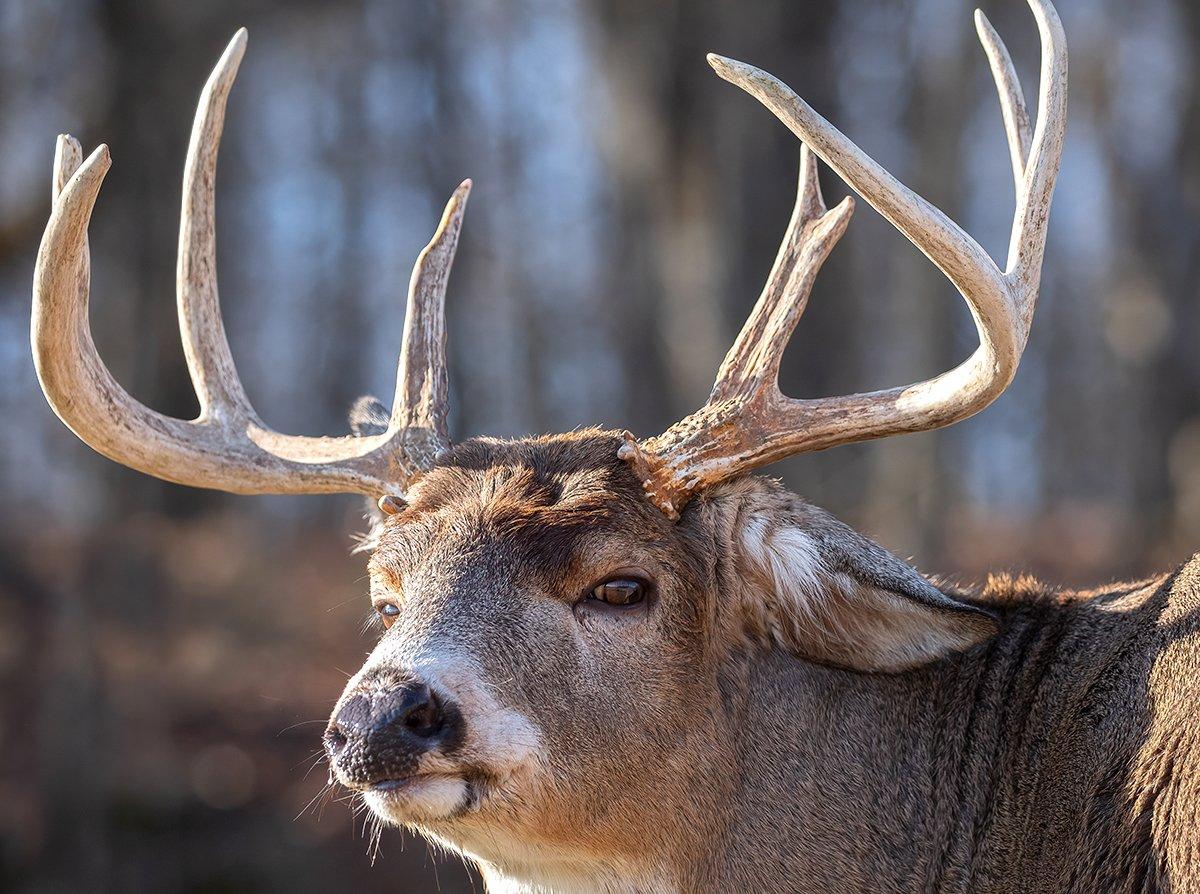A look inside this fabled, legendary, larger-than-life deer sense
Your target buck steps out 75 yards away. Cool as a cucumber nowhere near a chopping board, he casually feeds along the timberline toward you. You're well-hidden with no chance of making noise, and the soft breeze signals a steady crosswind. The situation is dang near perfect, and you're a few sweet seconds from sending that buck to the back of the truck.
Then everything unravels, and the deer snaps to attention. Eyes bore like laser beams. Ears lock like satellites. Wanting nothing of it, he turns and starts stomping to Unk's “Walk It Out.” For those unfamiliar, the song moves right along, and that buck's gone before the opening line is out ya mouth.
Some hunters believe whitetails have a legitimate sixth sense. They think there's something specific and singular that gives deer another line of defense. Perhaps it's the negative energy hunters send when they see a buck and think, “I want to kill it.” Or maybe it's the predatory wavelengths emitted upon entering kill mode.
It's hard to ignore entertaining the possibility. That's especially true after watching a whitetail straight upwind tuck tail and run. Or after seeing a perfectly calm buck suddenly go rigid for no reason. Or even when a doe walks into the field more skittish than a hen in a fox den.
Still, unfortunately for believers, the existence of an official sixth sense is highly unlikely.
“It seems like some deer are a lot more cautious and timid,” said The Virtue's Phillip Vanderpool. “Your more aggressive bucks drop their guard more so than a timid deer with that sixth sense kicked in — a combination of all the senses. He just pays a lot more attention. It's the way he's wired and geared up.”
The more pressured deer are, the more likely they use the fabled sixth sense.
“A buck on public land that's hunted hard, he starts developing it,” Vanderpool said. “Maybe he's been lucky a couple of times and had encounters with humans. Bucks develop that and have probably had close encounters where they've been shot at or something.”
Fortunately, deer don't have another sense to worry about. Rather, the sixth sense is more likely a culmination of their senses, experiences, and other small things hunters miss. It's a pairing of the totality of their tool kit and everything we overlook. Often, that sixth sense is one of these elements.
(Don't Miss: The Sixth Sense, Part II: A Deer Hunter's Intuition)
Whacky Winds
Wind is an unruly donkey. It can blow in one direction one minute but shift to another in seconds. It might even do the infamous swirl. And let's not bother with testy thermals.
Most hunters use wind-checking powder. It drifts about five yards and dissipates. That doesn't provide a true indication of overall wind travel. Drop a fluffy ball of milkweed, though, and the wind's behavior comes to life.
Years ago, a buck picked me off bigger than a fresh booger after a hot shower. With the deer 30 yards to my north, and the wind stiff out of the west, it was blowing nowhere near that deer. Still, it smelled a rat and retreated.
Flabbergasted, I dropped some milkweed. As expected, it coasted 20 yards to the east, caught a quick 10-yard ride out of the south, and then shot like a rocket straight northwest. It kept doing that for the next half hour. With open-mouthed shock, I realize wind isn't just a donkey. It's a donkey with a big, fat dingleberry, and we don't always see it.
Forgotten Ground Scent
Some say deer can smell ground scent up to 15 days old. I think that might be far-fetched, but the sentiment remains — deer can smell your boot-laden stink for days after it's deposited.
Sometimes, a spooked deer might lose its wits because of some ground scent you left and forgot about, or that someone — or something — else left you weren't aware of. Either way, ground scent spooks more deer — and for longer — than we realize.
Unseen Threats
Humans like to think we know it all, but we don't. We aren't omniscient or all-seeing. Much goes on that we miss, even when we're close to it in the field. We aren't the only threat to whitetails. Other hunters, predator populations, stray balloons, misplaced twigs, and dozens of other things can bug a buck plum out.
Sometimes, we aren't aware when these things happen. Maybe a coyote passed by outside our field of view, but the deer saw it. Or perhaps a hunter walked down the property line 100 yards away and we didn't notice. Even a romping rodent can give a buck the heebie-jeebies.
The Little Things
Deer catch other things we miss, too. A slight rustling of a jacket. The nearly inaudible dinging of metal. A minimal leg movement. Whatever the minute issue, they sense it, and we don't. And such is life for deer and deer hunters.
(Don't Miss: 10 More Deer Hunting Myths Debunked)












